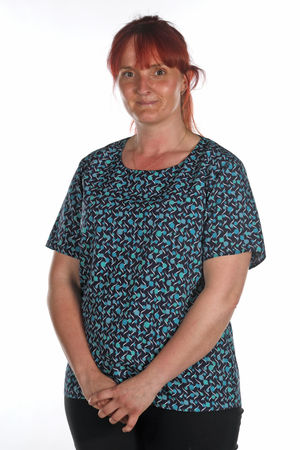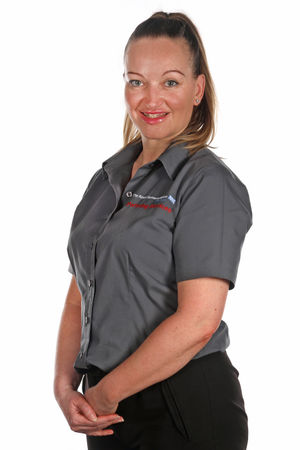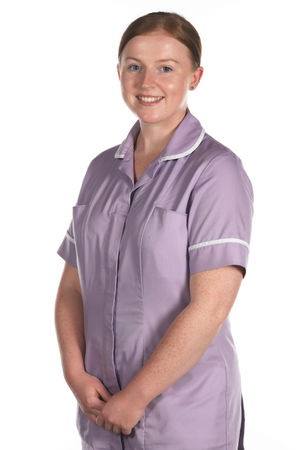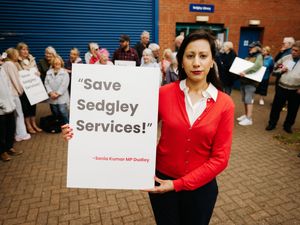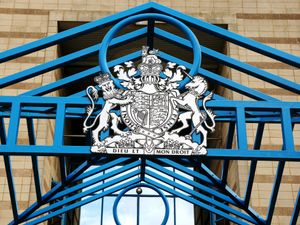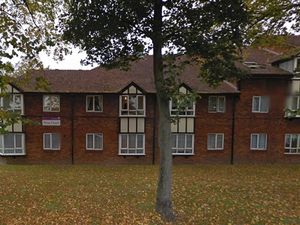Meet the NHS heroes fighting coronavirus on the front line at New Cross Hospital
Here are the NHS heroes who have been leading the fight against coronavirus at New Cross Hospital in Wolverhampton.
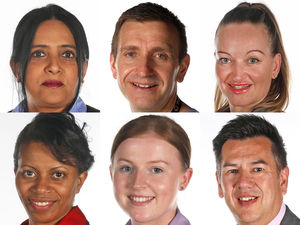
Healthcare staff across the country been under immense pressure tackling the threat of Covid-19.
But workers at New Cross Hospital have kept up their morale through letters and drawings sent to them by children – with every member of staff "pulling together" in the fight.
A contingency plan was drawn up at the Royal Wolverhampton NHS Trust, which runs the hospital, enabling them to prepare for the virus.
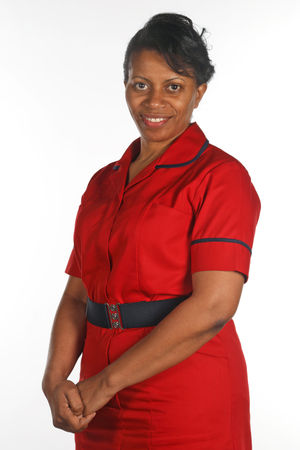
Doreen Black, head of nursing for division one, said: "For me, personally, it's been challenging. I started in my post in January and that's about the time when a lot of the cases started.
"Our organisation started getting prepared – we were having meetings early on, so although it has been a challenging time going into a new post, I've been getting the support I need – along with staff.
"I think we're handling it well – resources have been offered to support staff with what's been happening.
"I think if I was to say it wasn't stressful, then that wouldn't be the reality of it – but there's been lots of support."
More Covid-19 coverage:
Ms Black said she tries to visit the areas of the hospital where coronavirus patients are being treated as much as possible.
And she said matrons try their best to be positive for their colleagues – along with patients and their families.
"They make sure the patients are cared for at a high standard – if they're trying to be positive, the patients will be positive," she said.
"There's support for the staff and everyone is pulling together – staff are being trained to help in other areas if needed, and they're being redeployed.
"And I think the support from the general public has been overwhelming, the pictures from the children can actually boost the morale of staff.
"To know they're doing their job – and to have members of the community that they are serving appreciate them, letting them know they're doing it well, does boost your morale."
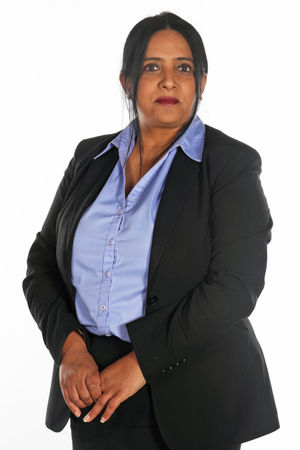
Bally Kaur, hotel services supervisor for housekeeping, ensures everything in the hospital – including in A&E – is sterilised and clean.
"We're still keeping to the highest standard we can, we're always put patient care first – it's been up and down, we've had staff who have gone down with symptoms or their families have symptoms.
"But it's nothing we've not coped with – there's a good bank of housekeeping staff.
"Working in a hospital is challenging but it has been extra challenging. It's the situation, honestly, because we've just come from the winter pressures.
"It's normally quite busy from November to March and now this – it's because of the situation."
Ms Kaur said a deep impact clean, which takes place on Wednesdays, is now taking place on Wednesday, Thursday and Friday.
The housekeeping staff carry out the full clean using bleach to ensure every surface – and items – are as clean as possible, along with their regular cleans.
"In the first week, I would say morale was pretty low," she said.
"But now as the girls are getting used to it, it's much better and we have an open door policy.
"The girls can go at any time – we've had emails from everyone in the trust so they have all the latest information.
"It's been nice – morale has been very good between nurses, doctors and all of us – we're all working together."
Ms Kaur, who has worked at the hospital for 16 years, also praised the pop-up shops at the hospital – selling food as well as fruit and vegetables.
"It's been really fantastic – they've done an excellent job," she added
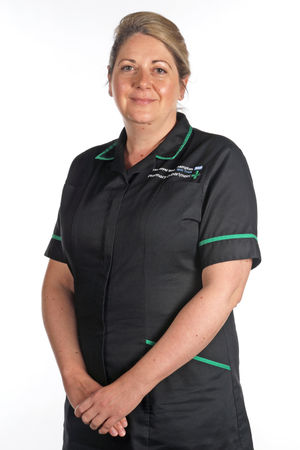
Chief pharmacist Angela Davis, who is in charge of medicines at the trust, said the hospital's stocks were under constant review.
She said: "From our perspective, maintaining our stocks are one of our biggest challenges but there are good national, regional and local systems in place.
"We can see to a regional level what trusts have in place and this is used to distribute the medicine to us.
"It's moving quickly – we're having to look at it daily, even on the weekends, so we can monitor it.
"And we were actually helped by Brexit – there was a lot of concerns around medicines and those systems were already in place.
"We're ok at the moment – there's always a level of concern – but I'm confident."
Ms Davis said it had been "really stressful" at the start but it was now manageable.
"I would say it was really stressful initially, there was a huge amount of information and a lot of planning which happened very very quickly," she said.
"We had to implement things which would take weeks, or sometimes months, and we did that almost overnight.
"Now I think we've got really good plans in place and we all work really well as a team.
"Yes, it's stressful, but there are plans in place and we just have to do our jobs and deliver good patient care."

Nick Bruce, associate chief technology officer, is responsible for supporting ICT requirements – such as digital healthcare records.
He said: "I think the main challenge has been the pace of things – we were prepared for the transformation in the way we provide our care, in terms of digital being a main aspect.
"And there was always a road map that set out where we were going – such as by using remote ways of working.
"But this has accelerated everything with intense pace and the challenge has been the pace of changing things quickly.
"We've been lucky because we're quite digitally mature, we're one of the most mature in the region, and not all hospital trusts are in our position.
"So we've been able to adapt and adapt quickly because we've got the infrastructure."
Remote working is now in place for around 1,000 staff across the trust, with board meetings also taking place through video conferences.
"The road map was a strategy of changes over a period of three years – video conferencing, that was 12 months off," he said.
Now the team is looking at giving patients at the hospital, who are being treated for coronavirus, iPads which have video conferencing apps on them.
Mr Bruce said: "We're very mindful that one of the horrible things of the virus is once you're admitted, you're very much in isolation from loved ones.
"Having communication devices which can be used with Zoom, Skype or FaceTime, will help them.
"We've been putting them out and we've been getting positive feedback so far.
"While we don't have much influence on the clinical outcomes, we're hoping that by being able to speak with loved ones it will give them hope – and make them more determined to fight it.
"I'm really proud of all of my team and all the staff – we've all really pulled together."
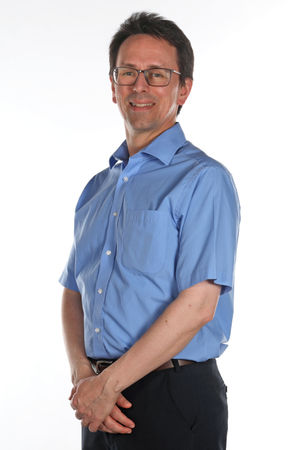
Dr Donald Dobie, consultant microbiologist at New Cross Hospital, is part of the Black Country Pathology Service – which is carrying out coronavirus tests.
He said: "I would be lying if I said it wasn't stressful – we've been working much harder than normal and I'm very grateful to my colleagues.
"The first weekend where we had a positive patient caused a lot of extra activity – I got on the phone to my colleagues, who weren't on the rota to work, and they helped me.
"It's great because we work together as a team – we're all in it together.
"It's been hard with the laboratory staff – they work long shifts and they've done a really good job in getting tests started."
Staff are working 12-hour shifts in order to increase the number of tests – with the process taking between four and five hours to complete.
"They've put in more and more shifts and we've been doubling up at the weekends. Usually we have one person one but now there's two and we're a team of four.
"But it's made things easier because we've shared the workload.
"There was a lot of pressure from central Government in the early days and we didn't have the equipment.
"The Government worked very closely with suppliers and there's a lot of work which has gone on in the background.
"A lot was being asked of us when we couldn't deliver and that delivers some stress.
"There was stress but our main stress is to get the results out as quick as we can."
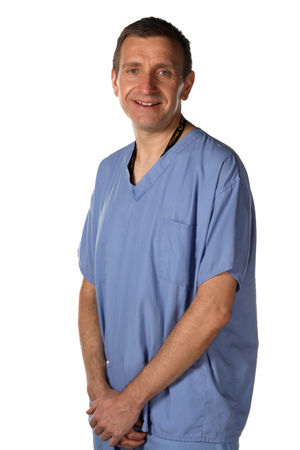
Dr Phil Dainty, consultant acute physician and clinical director for the emergency services group, said: "The pressure in the hospital at the moment is not too bad.
"We've had to have a rethink of the ways in which we are working, by re-organising our staff rotas and where we deploy staff.
"People are being as prepared as they can be. Numbers may increase over the next few weeks.
"Staff are feeling positive and it's normal for people to have a period of feeling anxious.
"I look after the emergency team and the acute medical unit and everyone found it difficult to start with while we were adapting to the ways we work but everyone is being flexible.
"There have been changes, we have had to think a lot about organisations, instructing cover over not just our department, but across the whole of the hospital."
The 43-year-old, who lives in the city, said there had been periods where he had felt stressed – but said people were acting responsibly, which was a big help.
He said: "There has been some clinical pressures – we're seeing a steady number of people coming in who are quite ill.
"We are having to communicate with families too, its difficult for the patients because their families can't come and see them.
"We are phoning their families to keep them up to date.
"In a general terms from a personal perspective, it has not been too bad – there have been periods where I have been stressed.
"We are currently quite lucky – I think the local population are acting responsibly and only attending the emergency department only if they are really concerned or if they have a significant injury.
"That is helping us – because if we were having to deal with the numbers we ordinarily have in the department alongside the acutely ill, that would be difficult.
"We are being well supported by the public – and donations from people and well wishes keep staff's morale up."
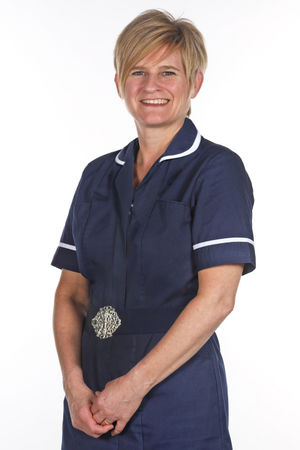
Clare Nash, senior nurse for clinical procurement, handles requests for equipment – such as PPE – across the hospital.
And she, along with other members of the team, have to make sure each ward and frontline worker receives suitable protection.
She said: "We have a seven-day service to protect our staff and make sure the PPE and other consumables they need are available to all departments.
"New support systems have been put in place to make sure the PPE we've got is delivered and we've got an amazing team here.
"We're doing as much as we can we're doing our best in these trying times – we're working all together as part of our lovely Wolverhampton family."
Ms Nash said it was tough to make sure the PPE is handed out evenly across the hospital, but said the team were "amazing".
She added: "We've got such a great team and a good sense of humour which I think you need to get through it all.
"We're very supportive of each other, too, and we have a rota where there's a senior manager on each shift.
"Morale is quite good – it's made us realise how great the team is, not that we didn't know that before!
"We all love working at Wolverhampton because it's such a friendly place to be – you're welcomed with a smile and a thank you from people picking up equipment, too."
